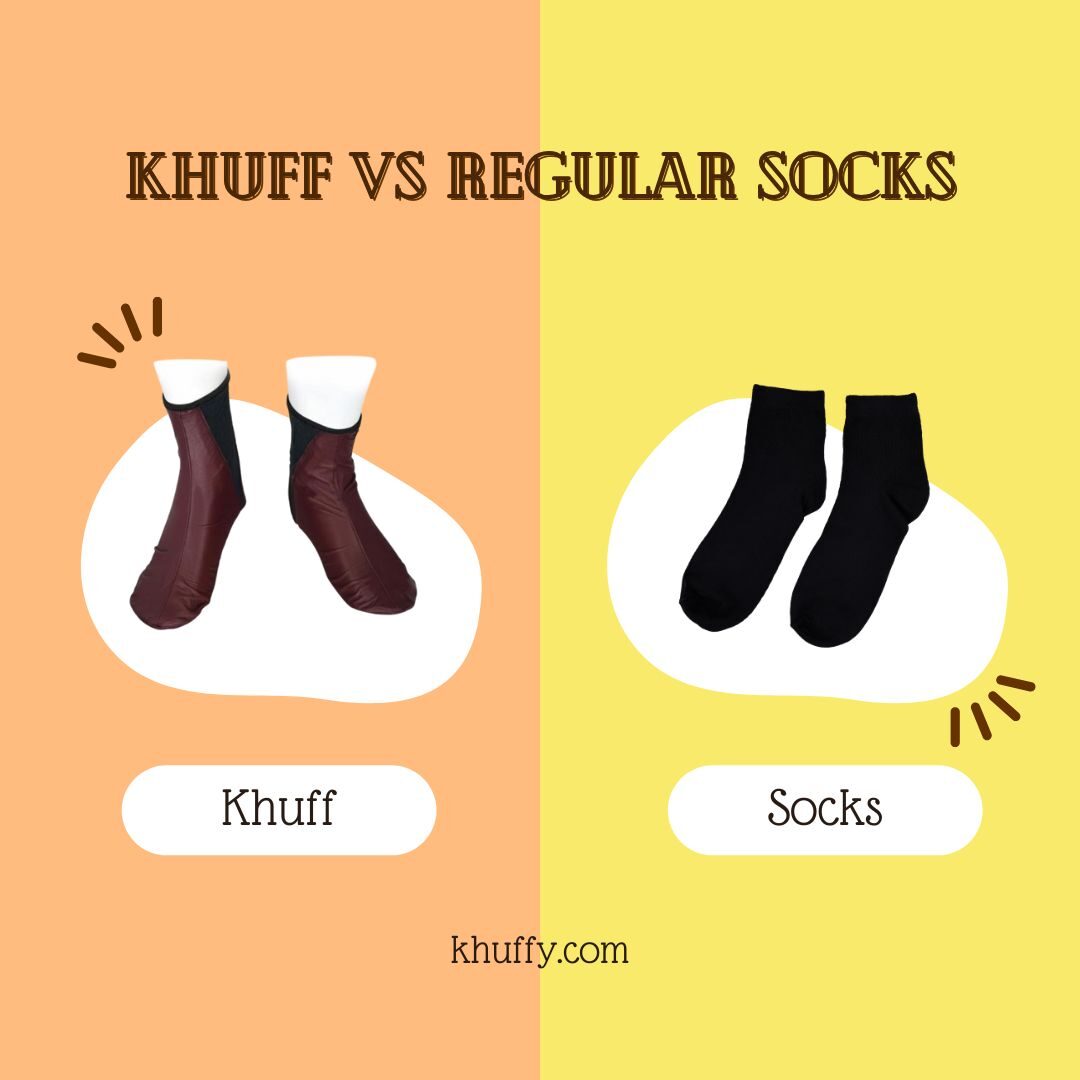What is the Difference Between Khuff Socks and Regular Socks?
The Difference Between Khuff Socks and Regular Socks
In describing the differences between Khuff socks and regular socks, we may first look at the issue of “Masah”. Masah is wiping the feet with wet hands over one’s leather Khuff, in wudhu (ablution), without removing them. It is permissible to do masah with Khuff but not with regular socks (per most scholarly opinions). We can assume that leather khuff socks are permitted for masah because they better protect the feet from impurities. As apposed to regular socks, Khuff sock are water-resistant so they would even prevent impure liquids from reaching the feet.
For those who may be unfamiliar with how to perform masah, generally speaking, it is very simple. Masah is done by passing one’s wet fingers from the toes towards the ankle. The right foot is wiped over with the right hand, and the left with the left hand. Also, one should open one’s fingers during wiping, and should not repeat wiping. Of course, one should check the specifics according to his/her school of jurisprudence for exact details and conditions of masah, if necessary.
Leather Khuff (prayer socks) are commonly worn when heading to the masjid, and in the masjid, as they are better at repelling dust and odors than regular socks. Thus, leather khuff are perfect for praying in as well. They have also proven to last much longer than regular socks. Naturally, leather is difficult to tear and lasts many years. Leather Khuff do not wear out easily, even with frequent or daily use. It is also related that the Prophet (SAW) used to wear Khuff when he travelled.
Additionally, from a practical aspect, Khuff socks can be worn by themselves or over regular socks protecting the feet from the cold. They are also comfortable to wear around the house. Leather Khuff socks protect the feet from abrasions when walking or sitting on unsmooth surfaces. The Whirling Dervish communities commonly use leather Khuff in dhikr practices as they find them conducive to their practice of revolving on one foot. One can imagine that using regular socks in this case would cause them to quickly deteriorate.
In today’s modern Western world, Khuff become very handy in the workplace or office. Rather than having to remove your socks and wash your feet in a public sink or basin, you can do masah over the Khuff. This provision also helps preserve cleanliness and hygiene as many workplaces do not provide special clean areas for wudhu. Remaining in the state of tahara (ritual cleanliness) in obviously a must for performing salah.
In short, every Muslim should have a pair of Khuff, or Khuffain in the plural, on hand. They are not only one of the Sunnas but also serve practical purposes and have qualities not found with regular socks.
